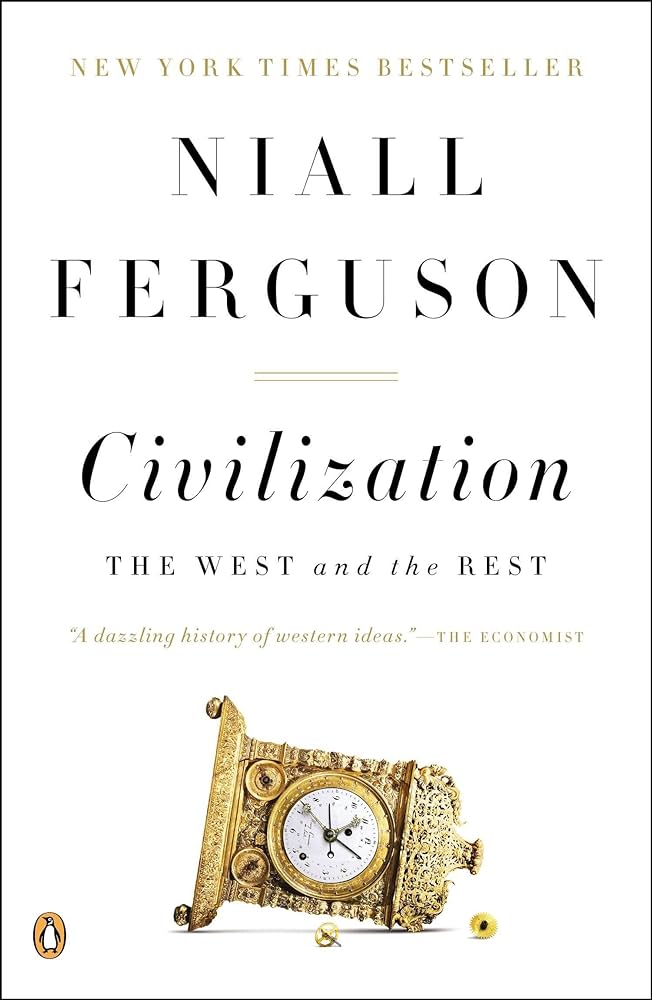
Western civilization is a social construct. It is not there writ large; as hidden underneath any civilization is a multitude of cultures, sub-cultures; and even a Bohemian way of life, that is anathema to what civilization is all about: order, discipline, functionality, and resilience, that can be passed down from one generation to the next. Despite all these caveats, one can indeed speak of a Western civilization, and all of that which it seems to personify. In this sense, Niall Ferguson, who first made a name for himself by writing on the history of the Rothschild family, is oblivious to all the conceptual flaws of civilization. Rather, he focuses on the ostensible strength of Western civilization, and whether it is sustainable.
Indeed, Western civilization’s rise to global dominance is the single most important historical phenomenon of the past five centuries. How did the West overtake its Eastern rivals? Indeed, paradoxically, how had the East allowed its considerable advantage in philosophy, science and medicine to be superseded by the West?
Has the zenith of Western power now passed? Niall Ferguson, a Scot by birth, but a brilliant historian at Harvard University, argues that beginning in the fifteenth century, the West developed six powerful new concepts, or “killer applications.” These were competition, science, the rule of law, modern medicine, consumerism, and the work ethic; all of which the Rest lacked, allowing it to surge past all other competitors.
Yet now, Niall Ferguson shows how the Rest have downloaded the killer apps the West once monopolized, while the West has literally lost faith in itself. Brexit and the rise of Trump are two of the most poignant examples; coupled with the emergence of the far right in and across Eastern Europe. Chronicling the rise and fall of empires alongside clashes (and fusions) of civilizations, “Civilization: The West and the Rest” recasts world history with force and wit. Boldly argued and teeming with memorable characters, this is Niall Ferguson at his very best.
But it is not Niall Ferguson’s best historical work yet, since it is based on six concepts merely, and not more. A civilization’s real ballast come not from the six “killer apps,” but the contexts in which it operates in real time. The many wars in Europe harnessed and strengthened Europe in ways both real and self-destructive. But the interesting thing is the West has been able to get pass its destructive wars; as marked by the rise of US after the end of World War I, II and the Cold War. Can one describe US as the fount of the West or must we include the European Union that is now facing an identity crisis ? Niall Ferguson lumps the two together to speak of one civilization, while ignoring the weaknesses of Russia and the Eastern European countries. This book, in this sense, is not without its selection bias. But, by no means, should the merit of this book be discounted since it was a deep and wide-ranging effort to understand what makes the West tick. But, like all generalizations, it suffers from throwing the proverbial net too wide. Japan and China, too, have risen. Yet, they are not considered an equal of the West; merely part of the Rest. Therein lies the peculiarity of this book.
